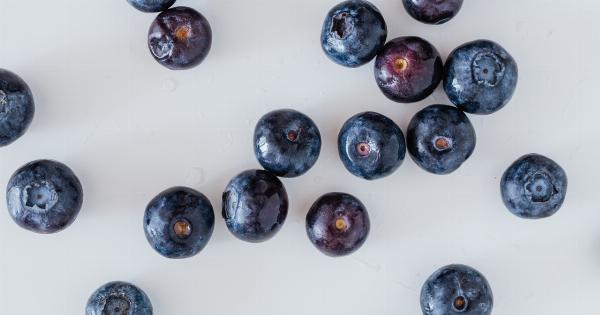When it comes to developing a healthy lifestyle, it’s important to pay attention to the foods you consume. From fruits and vegetables to whole grains and lean proteins, there are numerous components that make up a well-balanced diet.
One often overlooked but incredibly beneficial food group is seeds. Seeds are packed with essential nutrients and can offer a wide range of health benefits. In this article, we will explore why seeds are an essential part of a healthy lifestyle.
1. Rich in Nutrients
Seeds are a powerhouse of nutrients. They are packed with vitamins, minerals, antioxidants, and healthy fats. Different seeds offer different nutrient profiles.
For example, chia seeds are an excellent source of omega-3 fatty acids, while pumpkin seeds are rich in magnesium and iron. Adding a variety of seeds to your diet helps ensure you receive a wide range of essential nutrients necessary for maintaining good health.
2. Excellent Source of Fiber
Dietary fiber is crucial for digestive health and plays a key role in maintaining a healthy weight. Seeds are an excellent source of both soluble and insoluble fiber.
Soluble fiber helps to regulate blood sugar levels and lower cholesterol, while insoluble fiber promotes regular bowel movements and prevents constipation. By incorporating seeds into your diet, you can increase your fiber intake and support a healthy digestive system.
3. Promote Heart Health
One of the major benefits of incorporating seeds into your diet is their positive impact on heart health.
Many seeds, such as flaxseeds and hemp seeds, contain high levels of omega-3 fatty acids, which have been shown to reduce inflammation and lower the risk of heart disease. Additionally, seeds are rich in monounsaturated and polyunsaturated fats, which can help to lower bad cholesterol levels and promote overall cardiovascular health.
4. Aid in Weight Management
If you are looking to maintain or lose weight, incorporating seeds into your diet can be highly beneficial. Seeds are relatively low in calories but high in nutrients and healthy fats, which can help keep you feeling fuller for longer.
The fiber content in seeds also plays a role in controlling hunger and preventing overeating. Including seeds in your meals and snacks can support your weight management goals.
5. Boost Energy Levels
Seeds are an excellent source of energy-boosting nutrients. They are rich in B vitamins, which play a vital role in converting food into energy.
The healthy fats found in seeds also provide a slow-release of energy, keeping you fueled and focused throughout the day. Instead of relying on sugary snacks or caffeine for an energy boost, consider adding a handful of seeds to your diet.
6. Support Brain Function
Several seeds are known for their brain-boosting properties. For example, sunflower seeds are rich in vitamin E, which has been linked to improved cognitive function.
Pumpkin seeds contain magnesium, iron, zinc, and copper, all of which support brain health. Including a variety of seeds in your diet can help nourish your brain and support optimal cognitive function.
7. Improve Digestive Health
The high fiber content in seeds promotes a healthy digestive system. Fiber adds bulk to the stool and helps it move smoothly through the intestines, preventing constipation. Additionally, seeds contain natural laxative properties due to their oil content.
Regular consumption of seeds can help maintain a healthy gut and prevent digestive issues.
8. Enhance Skin and Hair Health
Seeds are a fantastic addition to your skincare and haircare routine. Many seeds contain essential fatty acids that nourish the skin and promote a healthy complexion.
The antioxidant content in seeds also helps protect the skin against free radicals, preventing premature aging. Additionally, seeds like flaxseeds and chia seeds are a rich source of omega-3 fatty acids, which can promote shiny hair and reduce scalp dryness.
9. Versatile and Easy to Incorporate
Seeds are incredibly versatile and can be easily incorporated into your diet. You can sprinkle them onto salads, yogurts, smoothies, or oatmeal for an added nutritional boost.
Seeds can also be used as a topping for baked goods or added to homemade granola bars for extra crunch. With numerous options available, you can experiment with different seeds and find creative ways to include them in your meals.
10. Are Seeds for Everyone?
While seeds offer numerous health benefits, it’s important to note that some individuals may need to consume them in moderation or avoid them altogether.
For instance, those with certain seed allergies or digestive conditions may need to limit their seed intake. It’s always best to consult with a healthcare professional or dietitian to determine whether seeds are suitable for your specific circumstances.
In conclusion, seeds are an essential part of a healthy lifestyle due to their nutrient-dense nature and numerous health benefits.
From supporting heart health and weight management to promoting digestive health and enhancing skin and hair health, seeds offer a wide range of advantages. By adding a variety of seeds to your diet, you can enjoy their nutritional benefits and give your overall well-being a significant boost.






























